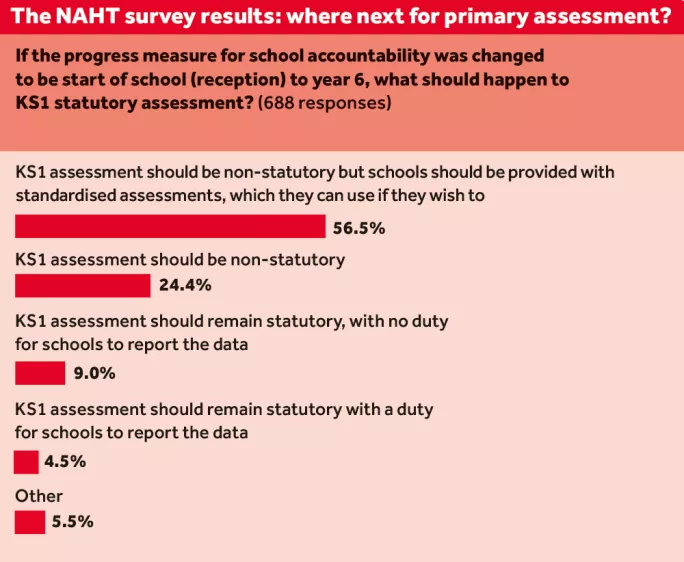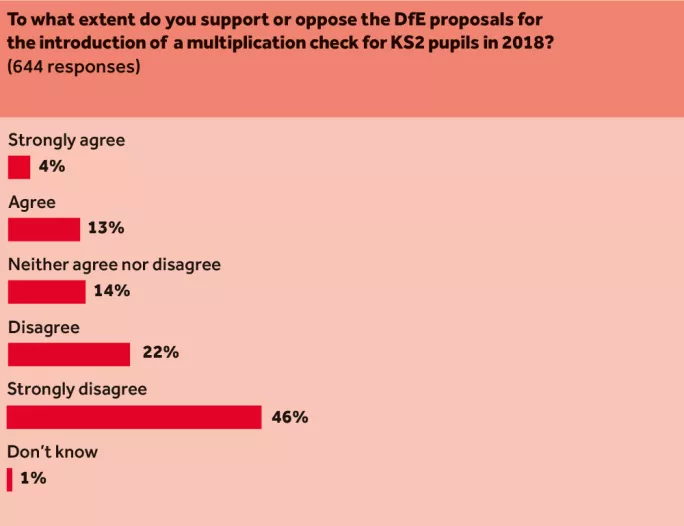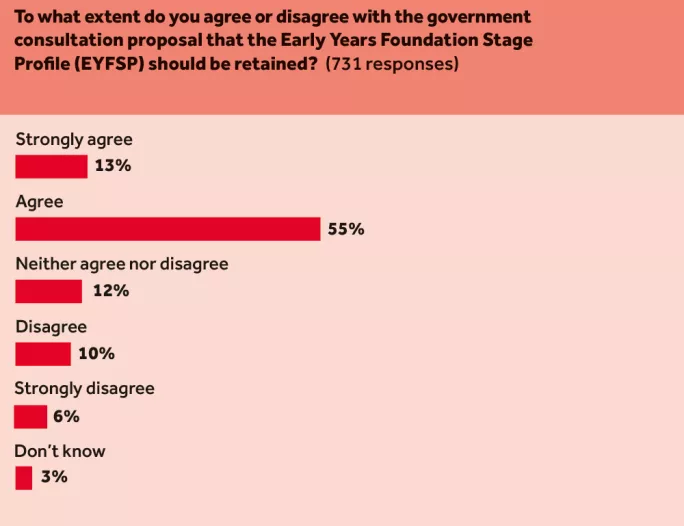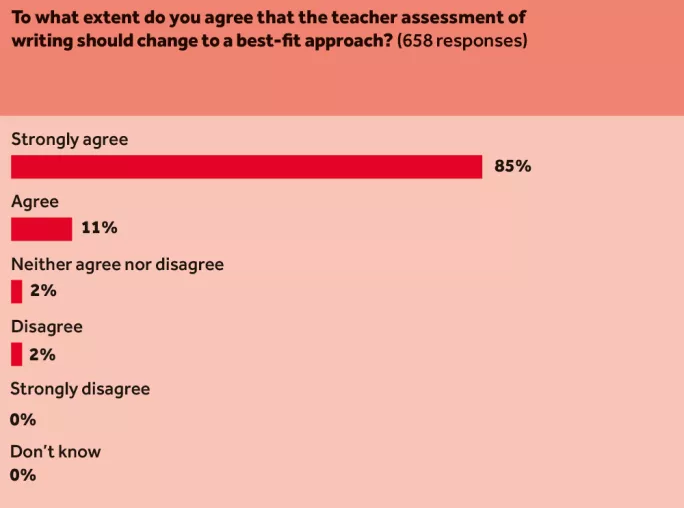‘Uneasy peace’ breaks out over primary assessment

Since the introduction of Sats more than a quarter of a century ago, assessment has become - and consistently remained - the most contentious aspect of primary education.
But after years of boycotts and reviews, and, in 2016, one of the most fraught summers since Sats began, some degree of consensus between government and primary heads on a way forward may finally be emerging.
Findings from a survey of members of the NAHT headteachers’ union suggest that the latest government proposals on primary assessment are broadly welcomed by rank-and-file headteachers.
The headline-grabbing proposal to sacrifice statutory key stage 1 tests in favour of a Reception baseline assessment - used to measure progress between the start of school and Year 6 - is backed by 81 per cent of headteachers who expressed a view. Heads are also pleased that the government has said it will retain the early years foundation stage profile; the government has accepted that broad, observation-based assessment is “valued and respected” in schools.
After the furore surrounding last year’s writing assessments, the government’s proposed U-turn on the current “secure fit” method - which requires pupils to meet every criteria to be awarded the expected standard in writing - and return to a “best fit” approach, is something that 96 per cent of respondents agreed with.
Finding the right fit
The changes will not come in time for this year’s Sats, which start on 8 May. Nevertheless, Russell Hobby, general secretary of the NAHT, senses a change in mood among primary heads. “There is almost an uneasy peace,” he says. “A temporary détente.
“There is a lot in the proposals that people are comfortable with; we have found a number of areas that we can put behind us. But there are still some areas that are not even touched by the consultation, which need to be addressed - [such as] fundamentally what the data is used for.”
The government’s consultation was prompted by the chaos surrounding the introduction of the new Sats last summer. It was known that the tests would be harder, but teachers were shocked by just how tough. When the results came out, 53 per cent of pupils reached the expected standard in reading, writing and maths, compared with 80 per cent reaching the previously expected level 4 in 2015.
Changes to the writing tests were particularly unpopular, with widespread confusion about exactly how to assess whether a child was at the expected standard.
The government eventually announced that the writing results would not be used as a basis for intervention by regional schools commissioners, and Ofsted’s national director for education, Sean Harford, said last month that inspectors would also continue to be cautious about the data this year.




Results from the first 899 responses of the NAHT survey of responses to its consultation survey on assessment, up to 24 April. Results will not be finalised until the survey closes on 1 May.
In October, education secretary Justine Greening said she wanted to “set out a clear path to a settled system”. The NAHT’s survey suggests that the proposals that followed last month have largely hit the mark.
The union’s most committed activists could theoretically still voice serious hostility when they meet for the NAHT annual conference in Telford this weekend.
But no motions on the agenda suggest outright opposition and Hobby expects delegates to stay broadly on board.
“I don’t think they’ll override it but I think we’ll have both positions [represented],” he says. “I think they’ll be pleased with our progress, but not satisfied with it, and they will be looking to see that their association hasn’t said ‘job done, let’s move on to something else’.”
The reception from classroom teacher unions is another matter. Two of the big three have already expressed serious reservations.
Children need time to settle in
Even support from headteachers about the baseline assessments remains conditional on exactly how they are introduced.
“Assessments made before children have had the chance to take their coats off…could get in the way of their settling in,” writes NAHT deputy general secretary Nick Brook (see our Comment section in this week’s magazine). “The new baseline needs to assess the right things in the right ways.”
But it is at KS2 where the future divisions lie, with unrest already bubbling over about how the test results are used - something not covered in the current consultation.
The times-tables tests - which the government has said will be introduced in 2018-19 - are extremely unpopular. Just 17 per cent of heads who expressed an opinion in the NAHT survey supported them. Forty-five per cent of respondents also wanted to see an end to the KS2 spelling, punctuation and grammar (Spag) test, which quizzes children on their knowledge of fronted adverbials.
There are also signs that heads are still keen for more radical reform. The NAHT is due to debate a motion this weekend calling for the union’s leaders to lobby government for national sampling for all tests at KS2, rather than compulsory testing for all.
“I’ve been a head since 2000 and until this moment I feel I have been pushing against a fairly closed door,” says Tony Draper, CEO of Lakes Academies Trust in Milton Keynes, who is proposing the motion. “The government has introduced tests that have not been relevant: like Spag, like the phonics check, like the times-tables tests they are proposing.
“There are elements there on which they could listen to us further and explore national sampling rather than whole-scale testing. We’ve got a door that is ajar now.”
You need a Tes subscription to read this article
Subscribe now to read this article and get other subscriber-only content:
- Unlimited access to all Tes magazine content
- Exclusive subscriber-only stories
- Award-winning email newsletters
Already a subscriber? Log in
You need a subscription to read this article
Subscribe now to read this article and get other subscriber-only content, including:
- Unlimited access to all Tes magazine content
- Exclusive subscriber-only stories
- Award-winning email newsletters